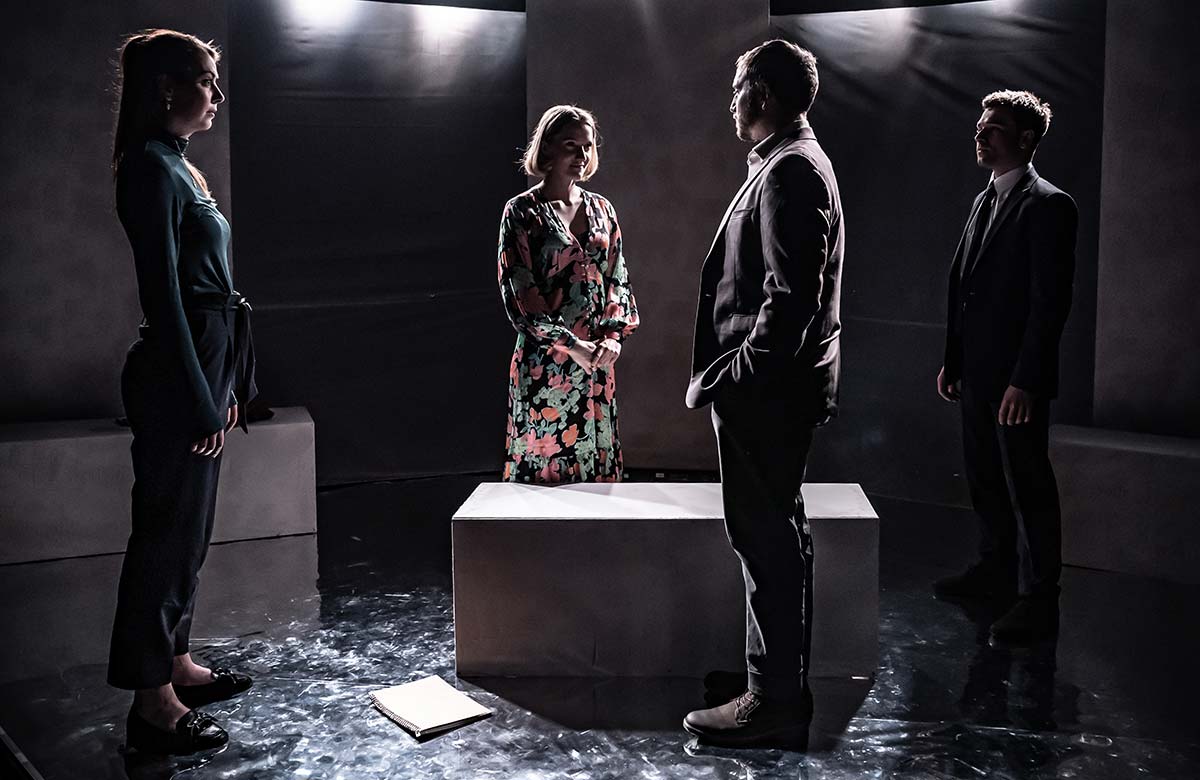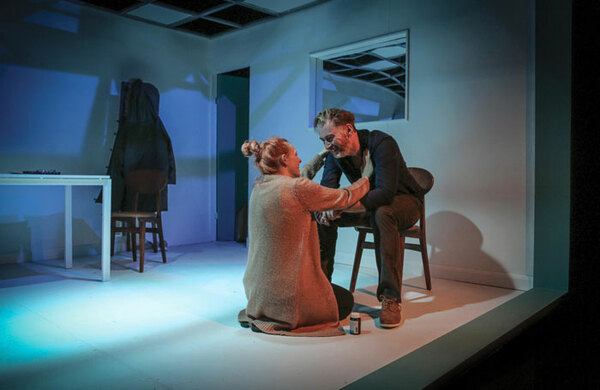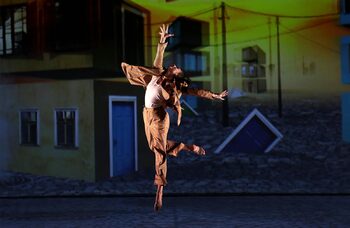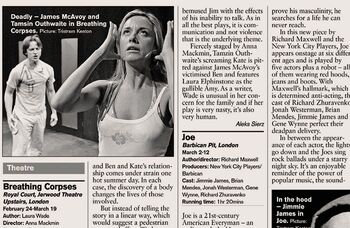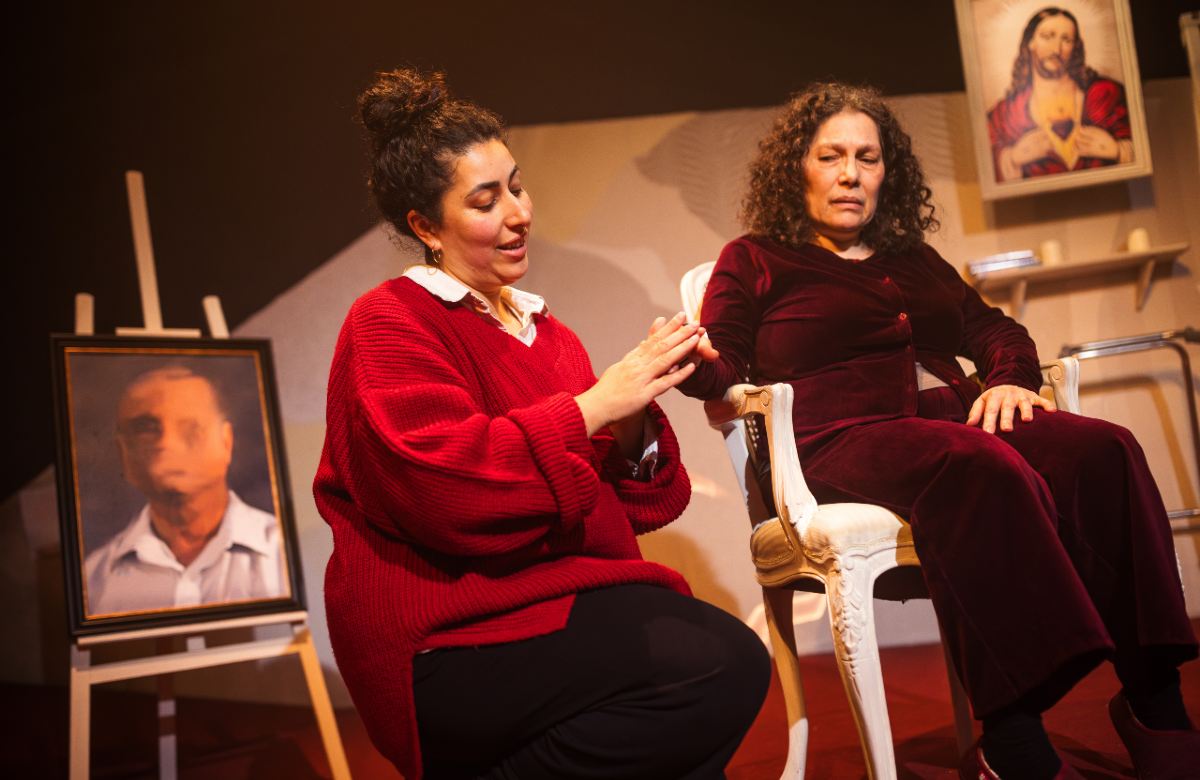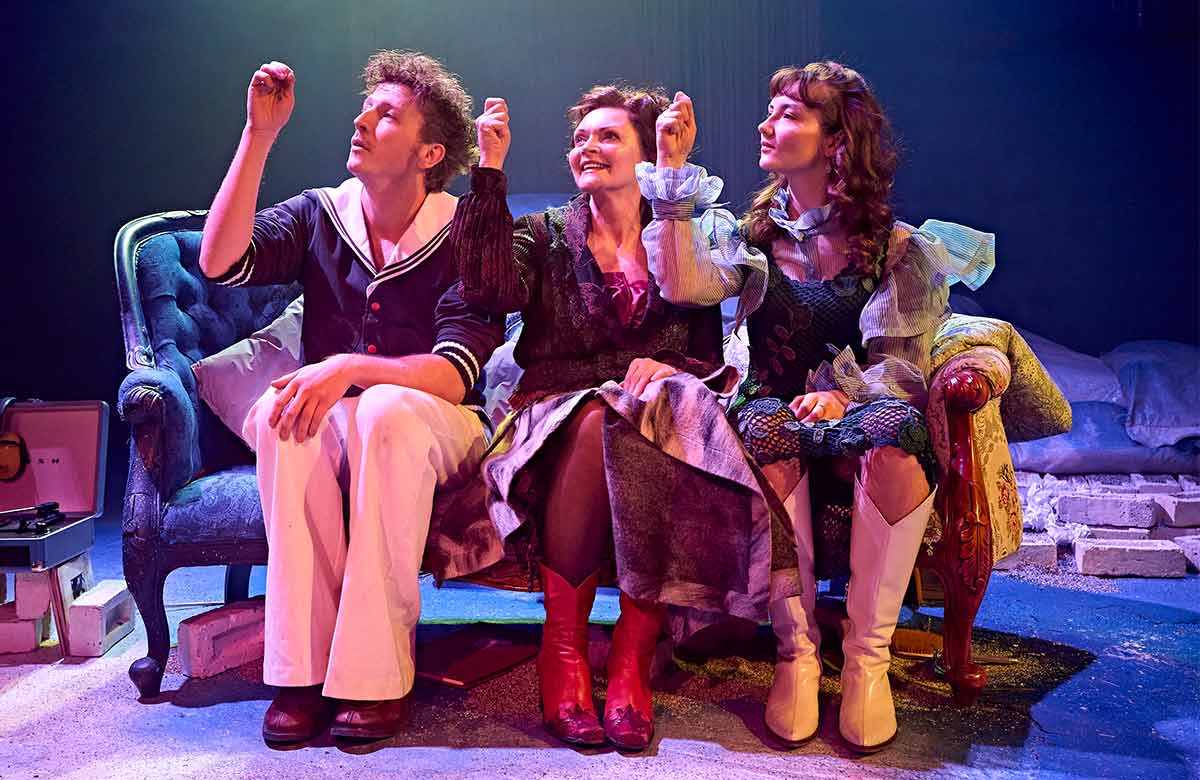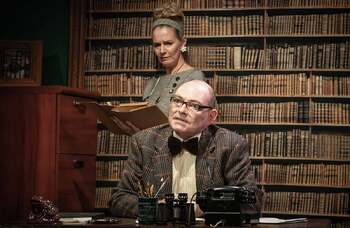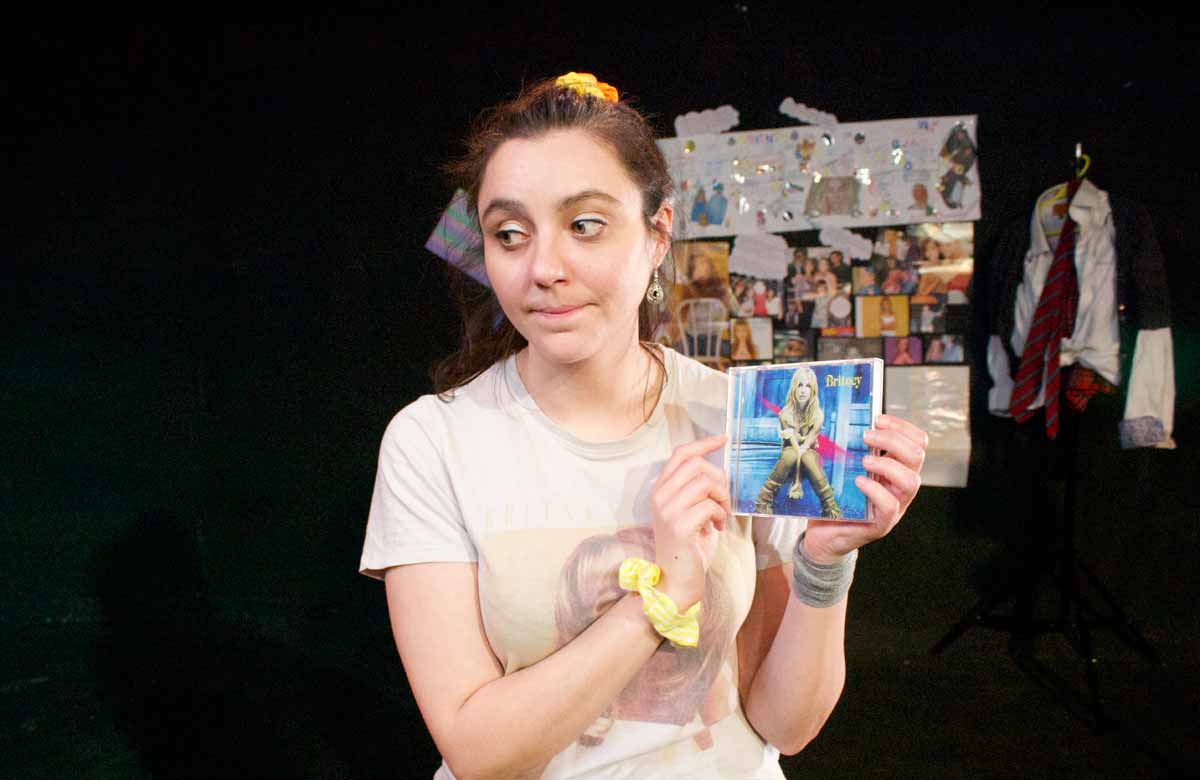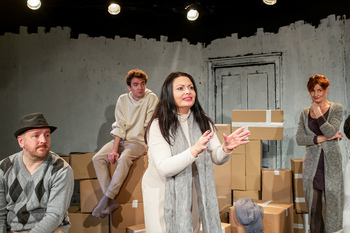Dirty Hearts review
Paul Murphy’s new play Dirty Hearts is littered with punchy one-liners, easy jokes and elaborate philosophical musings about global conflict, art and violence.
It is a style of writing that saw him win the Theatre503 Playwriting Award for Valhalla in 2014 and, eight years on, he impresses again at London’s Old Red Lion Theatre with a play about two couples at war within their relationships.
While the plot is not particularly original – a group of middle-class 30-somethings failing to make their relationships work – the dialogue is sharp and the actors’ delivery excellent.
Some of the jokes feel quite lazy, with cheap laughs drawn from references to the Taliban, paedophiles and xenophobic behaviour in a restaurant involving a waitress’ pronunciation of “salmon”. Yet Murphy is successful in building tension between the couples as more pieces of the story fall into place.
This is partly achieved by the play’s form: a series of disordered vignettes reveal snapshots of the couples’ lives, with the only reference point being a projection on the back wall at the start of each scene indicating the date and time. It takes a little brain power to remember where the characters are in their stories but the gradual revelation of key pieces of information is effective in highlighting the layers of deception.
The performances are intense from the beginning and despite the long running time (1hr 35mins without interval), energy levels remain high. Allegra Marland is exacting, adversarial and snappy as art historian Julienne, while Isabel Della-Porta impresses as doctor Laura, sensitively conveying the conflict of loving your partner despite their infidelity.
She pulls at her hair and paces the small stage, screaming and gesticulating wildly before retreating into herself and turning cold. There is a particularly gripping moment when she lists the stages of her boyfriend Ben’s (played as a wonderfully pompous Tory by Pierro Niel-Mee) drunken decline – it is both humorous and uncomfortable.
The mirroring between Julienne’s shaky valuation of a £150 million piece of art without provenance and her own relationship, which is built on lies, is a clever touch. But the parallels between real-world conflict and the violence within personal relationships are sometimes too heavily drawn.
Hector Murray’s bright lighting design creates the impression that the characters are being held in an interrogation room. This effect is encouraged by Sophia Pardon’s sparse and cold set, which, with white panels and boxes covered in brush strokes, resembles one of Julienne’s art galleries. When the actors are not needed for a scene, they sit frozen and hunched around the edge of the stage, like statues on display in an exhibit.
Rupert Hands’ direction uses the confines of the black-box theatre to highlight the claustrophobia in these relationships. It makes for an intense and engaging piece of theatre.
More Reviews
More Reviews
Recommended for you
Most Read
Across The Stage this weekYour subscription helps ensure our journalism can continue
Invest in The Stage today with a subscription starting at just £7.99
